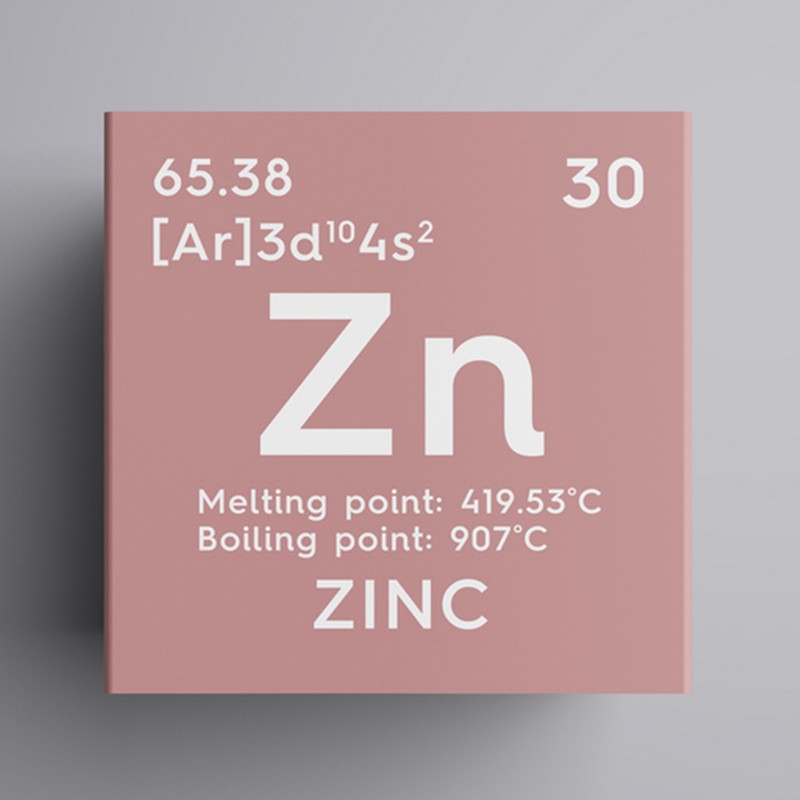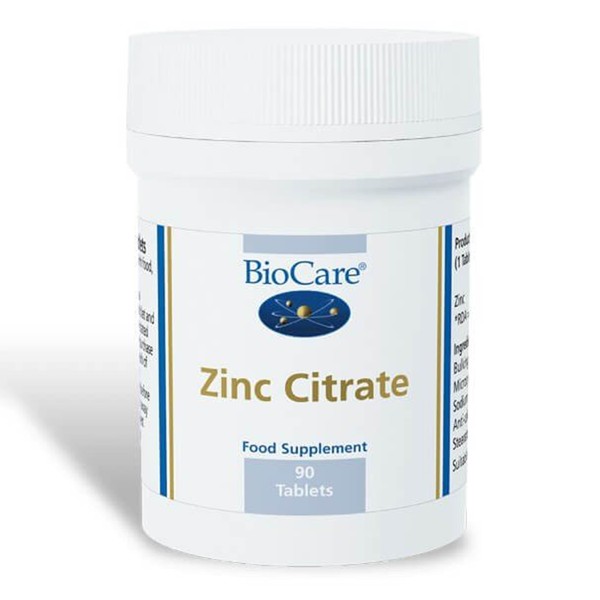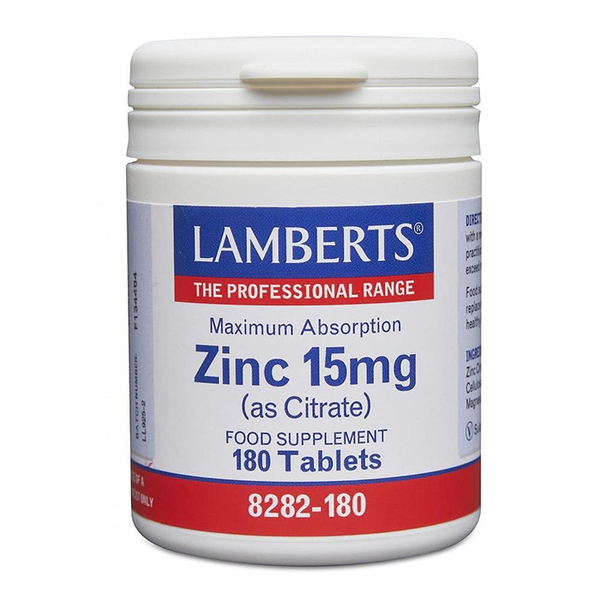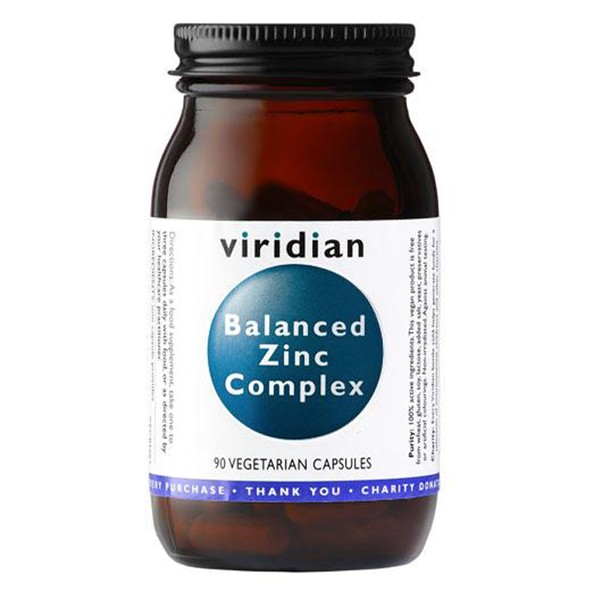
The Supplement Everyone Should Be Taking
It’s More Important Than You Think
Zinc is a key micronutrient your body needs for a number of roles, from supporting growth and development to helping your brain work properly. Harley Street nutritionist Lily Soutter says that zinc is the second-most abundant trace element in the body after iron and is located in pretty much every tissue, stressing its importance in keeping everything in balance. But as it’s an element, your body cannot make zinc, so it needs to come from the diet. “Zinc is needed by every cell in your body,” explains nutritionist Dr Marilyn Glenville. “But, like vitamin C, zinc isn’t made by the body, so it has to come in food or supplement form in order to keep your levels topped up.”
Your Immune System Loves It
There are a number of ways zinc supports the immune system but primarily it activates the enzymes that break down proteins in viruses and bacteria, so they are less able to spread, explains nutritional therapist Marilia Chamon. “Studies suggest zinc can reduce the frequency of infections as well as the duration and severity of the common cold when taken within 24 hours of onset. Try taking 30-60mg of zinc per day in divided doses to stave off the worst of a cold,” she advises. In 2015, an Australian trial found that high-dose zinc lozenges (80mg a day) cut the duration of nasal congestion by 37%, a sore throat by 33% and cough by 46%.
It’s Good For Fertility
Adequate levels of zinc are vital for both male and female fertility, explains Shabir Daya, MSPharmS and co-founder of Victoria Health. “In males, the prostate is the organ with the richest zinc supply whilst in females it’s the uterus. Both the uterus and prostate require healthy levels of zinc to work optimally. In women, a zinc deficiency can lead to hormonal imbalances, irregular periods, lack of egg maturation or release from the ovaries. In men, meanwhile, a deficiency can lead to prostate enlargement, low sperm count, poor sperm motility and quality,” he says. Dr Glenville adds that zinc could be particularly beneficial for sperm health, and that several studies have shown that reducing zinc in a man’s diet will also reduce sperm count.
Breakouts Will Be Soothed
“Zinc is one of the most important minerals for maintaining happy, healthy skin,” says Dr Glenville. “It’s thought that as much as 20% of the body’s zinc is stored in the skin and it has a major role in growth and healing. A zinc deficiency is linked with acne, dry skin, dermatitis and poor wound healing.” Marilyn also explains that zinc regulates oil production, balances hormones and protects against bacterial infection and inflammation, all of which are associated with acne. If you find it takes a while for cuts, scrapes and burns to heal, you may also want to take a look at your zinc intake.
Your Digestion Will Run More Smoothly
It’s easy to mistake symptoms such as nausea, vomiting and diarrhoea for an intolerance, but they are actually common symptoms of a zinc deficiency. Zinc supports many processes in your gut, which means your body can’t digest food and absorb nutrients properly without it. As Marilia explains, “Zinc plays an important role when it comes to keeping your gut barrier health. It’s one of the many nutrients responsible for regulating the tight junctions found in the gut, and those junctions have a very precise job. They control what’s allowed to pass from the digestive system to the bloodstream; when they become loose, bacteria, undigested food particles and toxins make their way through, causing a negative immune response.” Marilia adds that a compromised gut barrier can leave you more susceptible to food allergies, nutrient malabsorption and gut issues such as coeliac disease and inflammatory bowel diseases.
WHAT YOU NEED TO KNOW…
How worried should you be about a deficiency?
“Most of us assume we have sufficient zinc in our diet, however there is a growing amount of evidence to suggest that approximately 20% of the world’s population is deficient. This equates to around one in five of us, which is probably higher than expected. This deficiency is irrespective of where you live.” – Shabir
How much zinc should you be taking?
“The current recommendations state that women aged 19-64 should consume 7mg of zinc per day – an intake which can realistically be obtained from the diet. However, requirements for targeting specific health issues such as acne and immunity are much higher than this, so check with a health professional before you start supplementing to check the best dose for you.” – Lily
What should you eat to boost your zinc intake?
“Foods naturally rich in zinc include red meat, poultry, shellfish (especially oysters), fish, cereal products such as wheatgerm, beans, chickpeas, nuts (particularly cashew nuts) and seeds, notably pumpkin seeds. Six oysters, for example, contain 32mg of zinc, 100g of cooked lentils provides around 12% of your RDA and a 28g serving of cashews contains 15% of your recommended intake. If you are looking for a zinc-rich meal, consider a spaghetti bolognaise made using lean mince; a leak cut of steak with potatoes and vegetables; soups or stews using chickpeas; or pumpkin seed butter on toast. Just remember that chickpeas, lentils and beans contain phytates, which can reduce the absorption of zinc, so considering sprouting or soaking them before cooking which can increase their bioavailability.” – Lily
Are there any side effects to supplementing with zinc?
“You’d have to be taking excessive quantities of zinc (higher than 40mg per day) for it to become toxic, although zinc and copper compete for absorption in your small intestine, so excessive levels can lead to a copper deficiency. Although zinc is essential for human function, too much can interfere with healthy immunity so it’s important to get the balance right. Around 15mg of zinc within a daily multivitamin is adequate, although if you have a deficiency, you may need more. If you are concerned, pop to your GP and get your levels tested so you can adjust your dose accordingly.” – Marilyn
For more information visit MarilynGlenville.com, LilySoutterNutrition.com, GutfulnessNutrition.com and VictoriaHealth.com.
Shop these expert-approved Zinc Supplements...




DISCLAIMER: Features published by SheerLuxe are not intended to treat, diagnose, cure or prevent any disease. Always seek the advice of your GP or another qualified healthcare provider for any questions you have regarding a medical condition, and before undertaking any diet, exercise or other health-related programme.
DISCLAIMER: We endeavour to always credit the correct original source of every image we use. If you think a credit may be incorrect, please contact us at info@sheerluxe.com.

